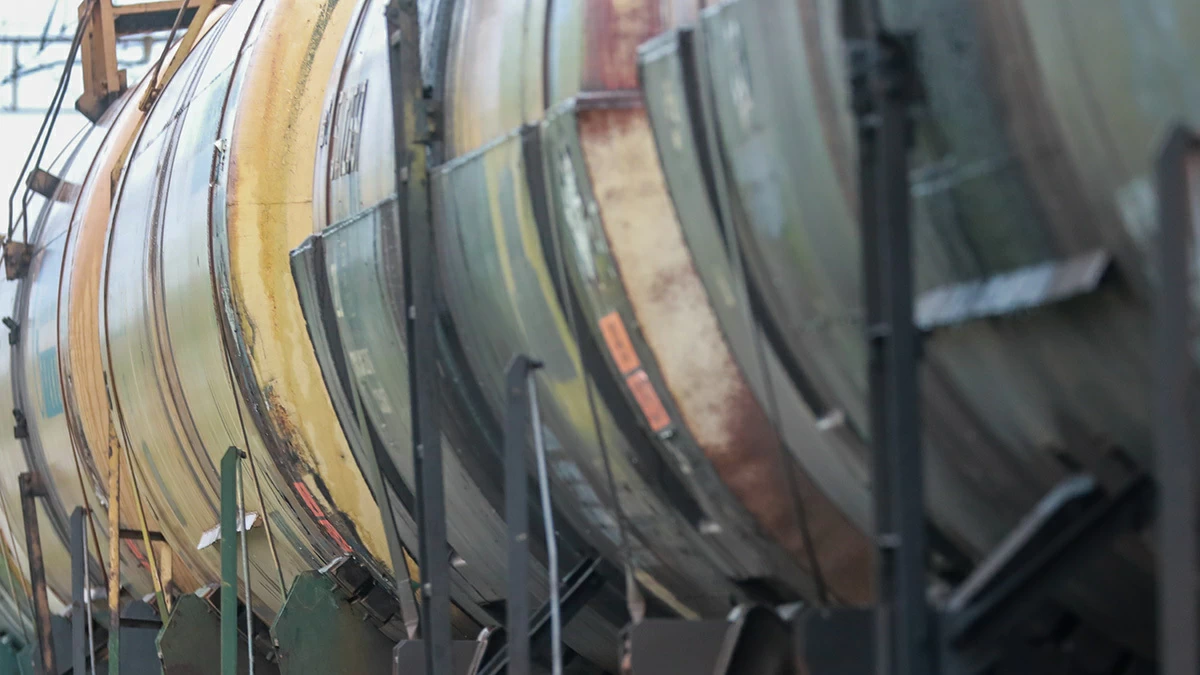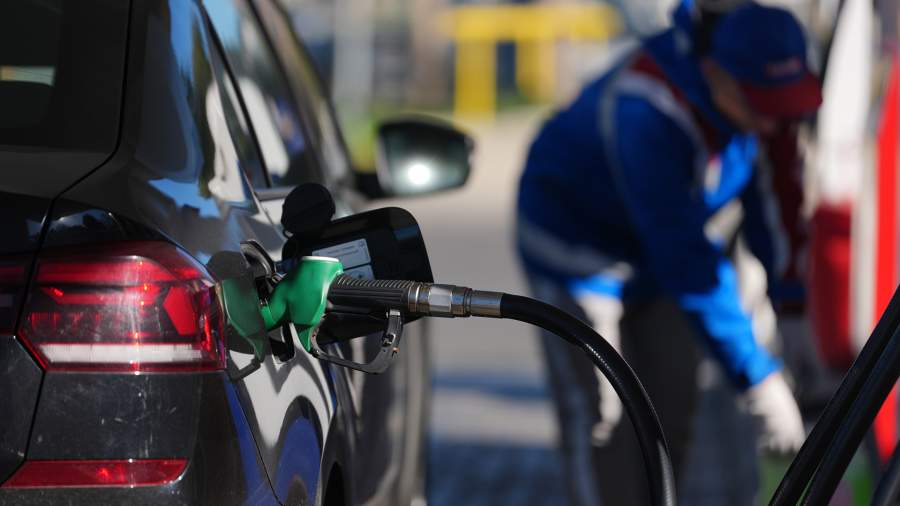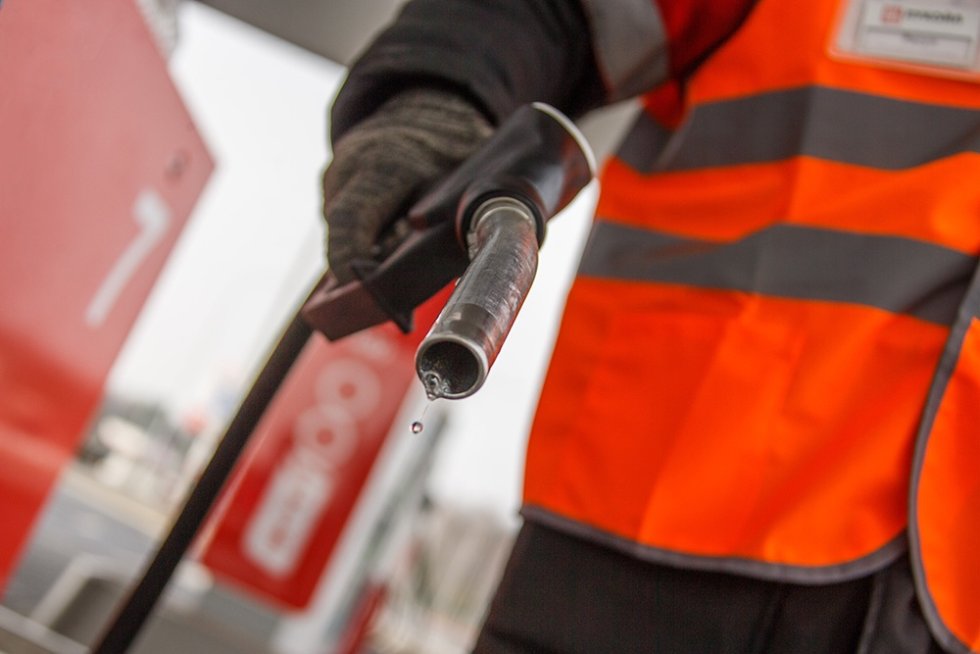On Tuesday, September 30, Prime Minister Mikhail Mishustin signed two resolutions extending the ban on petrol exports and on the export of diesel fuel for non-producers until the end of the year. In announcing this measure on September 25, Deputy Prime Minister Alexander Novak noted that it would help further secure the market for petroleum products.
The government had previously extended the ban on automotive petrol exports this year: from August 1 to the end of September a complete ban was in effect, initially affecting only traders and small oil refineries. On September 4, the Ministry of Energy reported changes to the schedule of planned repairs at oil refineries in order to avoid coinciding with peaks in petrol demand.
According to Kommersant, Deputy Prime Minister Alexander Novak proposed to Prime Minister Mishustin that the import customs duties of 5% on petrol imported from China, South Korea, and Singapore through certain border crossings in the Far East be removed. However, these actions and proposals have yet to halt the rising prices.
The Russian government is observing a "slight shortage" of retail fuel supply, which is being temporarily offset by accumulated stocks, as Novak recently told reporters. current data suggests.
Yet Igor Isaev, head of the Mind Money analytical centre, indicates that there are reasons for concern. "When Mr. Novak referred to a 'slight shortage', it sounded like a technical glitch; however, in reality, it indicates systemic overload: planned and unforeseen repairs at oil refineries, particularly in the Volga region and the south, have reduced processing volumes, and logistics have not been able to adapt," he says. Though the additional ban appears logical at first glance — if prior measures have failed, greater control is necessary — Isaev cautioned that "if producers cannot swiftly increase supply and traders are restricted in their manoeuvres, the ban may exacerbate tensions — especially in regions where supply interruptions have recently been common". He noted that in a number of areas there have been reports of petrol stations halting operations and limitations on fuel dispensing, signalling that the shortage is no longer "slight".
There is a lack of open and verifiable data regarding the fuel shortage situation in various regions, according to Sergey Tereshkin, CEO of the petroleum marketplace Open Oil Market. "The only publicly available indicator is the index of petroleum product production, which reflects the aggregate dynamics of automotive petrol, diesel fuel, aviation kerosene, and some other types of fuel — according to Rosstat data, Russian production of coke and petroleum products decreased by 6.3% in August 2025 compared to August 2024, and by 4.2% compared to July 2025."
In Crimea, restrictions on sales and the establishment of fixed prices for petrol have already been implemented. The head of the republic, Sergey Aksenov, communicated about the shortage at Crimean petrol stations on September 25. He assured that over the next two days, Crimean petrol stations would be supplied with sufficient volume of AI-95 petrol. However, by September 29, Aksenov indicated in his Telegram channel that a consensus had been reached with key fuel traders in Crimea to limit petrol and diesel fuel sales to no more than 30 litres per person, alongside the establishment of price ceilings. On October 1, the head of the region clarified that the implemented restrictions had not resolved the issue and the limit was reduced to 20 litres.
Sevastopol Governor Mikhail Razvozhaev announced on September 29 the introduction of restrictions allowing 30 litres of petrol per vehicle or canister. "Petrol is being delivered non-stop, but due to the high demand at petrol stations, we have not yet managed to achieve a planned operating regime," he said in his Telegram channel, adding that there were no restrictions on diesel fuel sales.
Anna Volkova, an expert at the analytical centre "Yakob and Partners", explains the situation in Crimea as a result of several factors: its remoteness from major oil refineries and the high demand from consumers. "The desire to stock up is triggered by news of unscheduled repairs at refineries and observed closures of a number of petrol stations due to unprofitability. However, with the balancing of fuel costs in the wholesale market, the situation is expected to stabilise by October," Volkova believes.
The company "Processing Centre Premium Card" reports on its website that at "Rosneft" and "Bashneft" petrol stations, restrictions on fuel dispensing have been set at 100 litres per fuel card. "Tatneft" petrol stations have suspended fuel sales everywhere except in Tatarstan since September 15. Similar actions have been taken by petrol stations operated by OLVI, GP Vympel (Saratov), and "Rose of the World" (Samara region). A representative from "Premium Card" stated to Forbes that these restrictions pertain to legal entities that are customers of the company and use its cards to pay for fuel electronically. Hotlines for "Rosneft", "Bashneft", "Tatneft", and "Rose of the World" indicated to Forbes that they had no information regarding any restrictions at their filling stations. A representative from GP Vympel assured Forbes that the company has sufficient fuel to avoid restrictions and is meeting all agreements with "Premium Card". Attempts to contact OLVI were unsuccessful.
The extension of the ban on petrol exports and the expansion of restrictions on diesel fuel for non-producers appears to be an effort to stabilise the domestic market, asserts Igor Isaev from Mind Money. According to Reuters estimates, Ukrainian drone attacks have halted operations at facilities accounting for at least 17% of oil processing capacity in Russia, or 1.1 million barrels per day, recalls Anna Volkova from "Yakob and Partners". "Each day, the country is missing one out of every five litres of fuel," she states. "Limiting exports until production levels are restored and the domestic market is saturated is justifiable."
Since the start of August, when drone attacks on oil refineries in the European part of Russia resumed and some installations underwent unscheduled maintenance, wholesale prices have risen sharply: the price of AI-92 petrol has increased by 12% to 73,900 roubles per tonne, while diesel fuel has risen by 24% to 71,900 roubles per tonne, as reported by experts from "BCS Financial Group", Kirill Bakhtin and Bulat Mudarissov. Furthermore, the full ban on petrol exports has yet to cool prices, they note. "This may indicate that capacities have temporarily decreased by more than 13%, which historically aligns with the share of petrol production directed towards exports. For diesel fuel, a less drastic measure will be introduced: the export ban does not affect producers," the experts clarify.
Moreover, the very extension of the ban on petrol exports means for oil producers the preservation of the status quo, asserts Sergey Tereshkin, CEO of Open Oil Market. He reminds us that the ban was already in effect in August and September; its extension was entirely expected, considering the increasing gap between inflation and petrol price growth rates. According to Rosstat, as of September 22, 2025, the cumulative increase in petrol prices reached 8.4%, while consumer inflation stood at 4.2%, therefore regulators had no option but to implement a new ban.
From August 2025, a number of additional measures will also be introduced to support the fuel market. The first is an increase in the mandatory fuel sales quota on the exchange from 15% to 17%, intended to allow greater control over prices of larger volumes of fuel and mitigate the influence of speculators, says Volkova from "Yakob and Partners". The second measure involves a possible adjustment of the damping mechanism, which will also affect price stability, she adds. "However, implementing an increase in the damping mechanism for petrol will require significant budget expenses, as it will reduce tax revenues from the oil and gas sector," the expert notes. This entails compensating petroleum products manufacturers for the difference between export and domestic prices. The government plans to raise the threshold for the so-called damping mechanism for petrol and diesel by 10 percentage points, to 20% and 30%, respectively (producers will receive payments even if the export price is higher).
Furthermore, according to Kommersant, Novak approached Premier Mishustin on September 24 with proposals to saturate the domestic market with petrol and diesel fuel. Among the additional measures is the removal of the 5% import customs duty on petrol imported from China, South Korea, and Singapore through certain border crossings in the Far East. Only authorized organisations — "Rosneft", JSC NNK, and the state-owned VO "Promsyryeimport" — will be permitted to supply fuel. A damping mechanism will be imposed on imported petroleum products.
This will enable the dispatch of approximately 150,000 tonnes of petrol produced at the Siberia refinery each month to maintain balance in the central part of the country, as indicated in the address. There are also proposals to increase petrol imports from Belarus. In September, it is noted in the address, Belarusian petrol supplies are estimated at 45,000 tonnes. Processing oil on a tolling basis could allow for an increase in Belarusian petrol supplies to 300,000 tonnes per month, as stated in the document.
Source: Forbes




